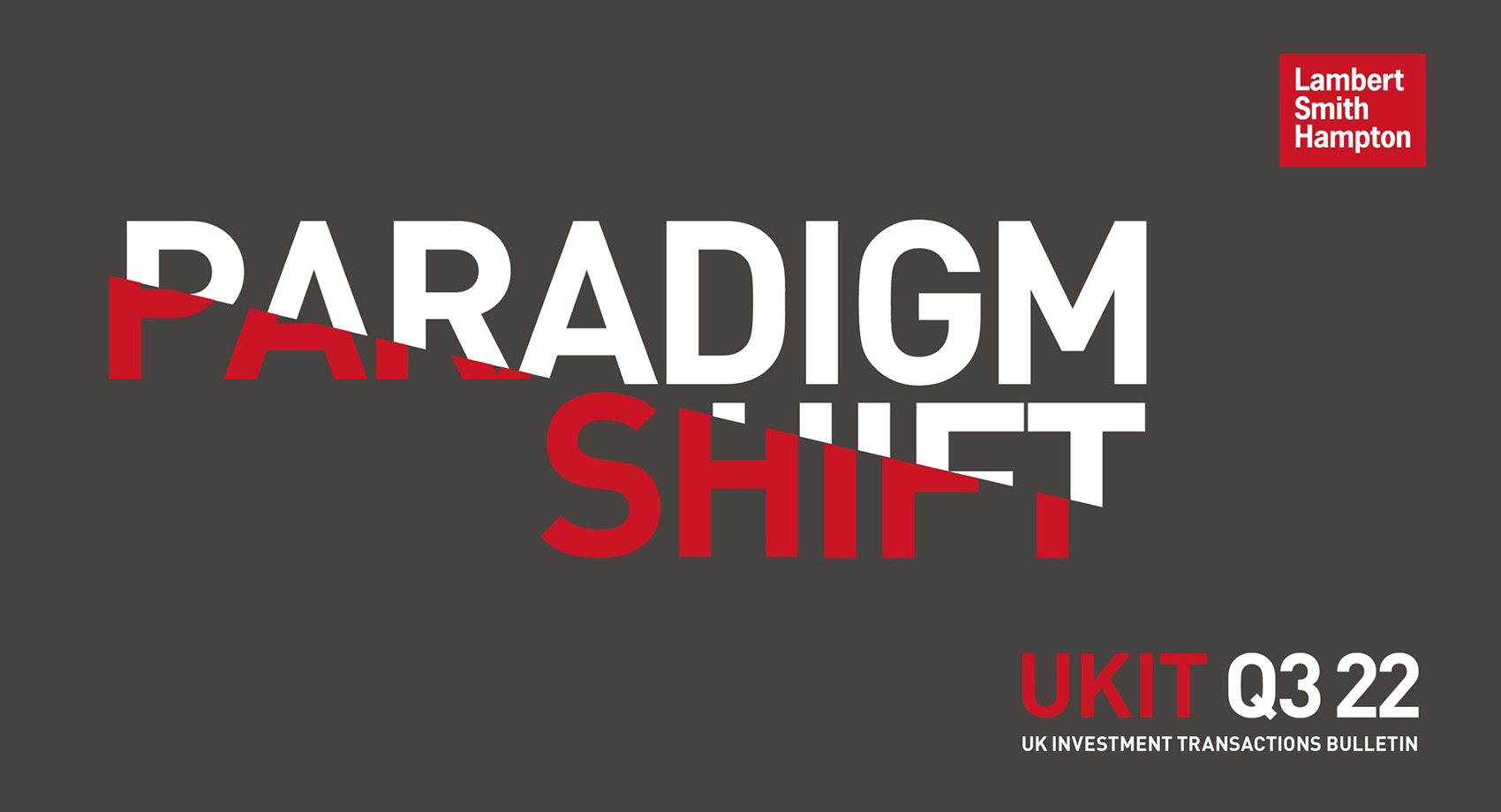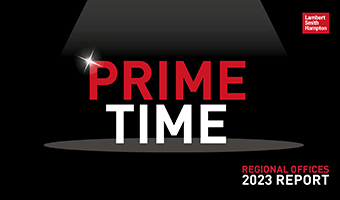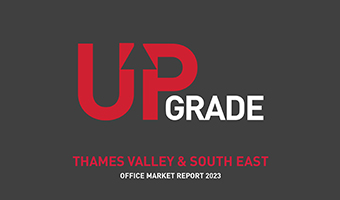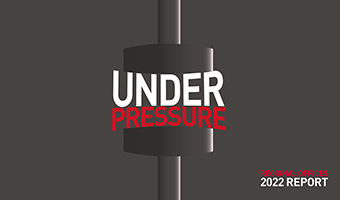£10.6bn of property assets changed hands during Q3 2022, down 36% on Q2’s respectable total and the weakest quarterly outturn since Q3 2020. The shift in the financial landscape also became increasingly evident throughout the quarter, with the number of deals in September hitting the lowest monthly total since the height of the pandemic in May 2020.
Download the UKIT Q3 2022 report in full here.
While weakening sentiment and pricing uncertainty were reflected across the board, their impact on volume was notable at the larger end of the market. Q3 saw only 24 deals in excess of £100m, down from 38 in Q2 and far removed from the recent high of 50 seen Q4 2021.
Q3’s largest and only transaction over £500m was Australian investor TCorp’s £809m (4.60% NIY) purchase of 21 Moorfields, EC2 from Land Securities. The deal spared an otherwise subdued quarter for Central London offices, where volume of £2.5bn was only 17% below trend. Office investment around the rest of the UK slumped from Q2’s strong outturn, most notably regional offices, where volume of only £276m was 63% below trend. Ongoing global appetite for life sciences continued to prop up the South-East offices market, with Q3’s headline deal being Railpen Investment’s £180m purchase of the Botanic Place development, Cambridge.
Meanwhile, despite a sharp softening of yields during Q3, industrial and logistics clearly bucked the trend with regard to volume. Volume of £3.3bn for the sector was 34% above trend and accounted for a record 31% share of the UK’s total for the quarter. While this was underpinned by several portfolio deals, there remained a healthy depth to demand, with Q3’s activity comprising an impressive 124 deals. Q3’s headline industrial deal was GIC Real Estate’s £425m (4.50% NIY) acquisition of the UK Land Estates portfolio from Northwood Investors.
Given the resurgent pressure on consumers, unsurprisingly, saw the weakest volume of the core sectors against trend. UK retail volume was £819m in Q3, 42% below average and the first sub-£1bn quarter since Q2 2020. Notably, the hot streak of retail warehouse buying appeared to have run its course, with volume of £285m in Q3 far removed from the 15-year high of £1.3bn seen in Q1. Supermarket Income REIT played a key role on the buy side in Q3, behind four of the five biggest retail deals in the quarter, the largest being its £85m (5.60% NIY) acquisition of the Willow Brook Centre, Bristol from CBRE GI.
All main buyer types were less acquisitive in Q3 compared with trend, albeit to varying degrees. Having recovered strongly in the wake of the pandemic, overseas buying in Q3 slumped by 46% quarter-on-quarter to a two-year low of £5.3bn. The slide was most acute among North American investors, with purchasing of £1.5bn being 40% below average and heavily focused on distribution warehouses. Despite the fall, overseas investors as ever remain substantial net buyers of UK property, amounting to £2.8bn in Q3.
Despite growing concerns around redemptions, UK institutions were only marginal net sellers to the tune of £180m in Q3, a significant turnaround from the £1.3bn net selloff in Q2. L&G took the leading share of institutional buying in the quarter, behind three deals worth a combined £372m. The other domestic buyer types were all net sellers in Q3, most notably listed property companies, where total net disposals hit a five-year high of £1.3bn, albeit due in large part to Land Securities’ above sale of 21 Moorfields, EC2.
Reflecting a recalibration of pricing across the market, the All-Property average transaction yield moved out by 34bps in Q3 to stand at 5.19%, and largely reversed the inward movement recorded in Q2. In both cases, the average transaction yield for offices and industrial moved out by a considerable 77bps during Q3, while retail’s average yield was broadly stable.
Ezra Nahome, CEO of LSH, commented: “The long era of ultra-low interest rates and cheap finance has come to an end, ushering in a paradigm shift in the market. Yields have already moved out across the board, with some sectors being hit harder than others.
“While a correction is underway, uncertainty over its duration and severity is giving rise to indecision and delay. This is likely to be reflected in another subdued quarter in Q4, after which greater clarity around the economy and interest rates should hopefully emerge in 2023, providing much-needed stability and a return to transactional activity.
“Some parts of the market will inevitably prove more resilient than others. While low yielding assets have been the most exposed to interest rate changes in the short term, their underlying strength and security should see them through. On the flipside, owners of assets that are compromised by structural or environmental factors will have to come to terms with a substantial loss of value to allow for viable repositioning.”
Get in touch


Email me direct
To:
REGISTER FOR UPDATES
Get the latest insight, event invites and commercial properties by email







